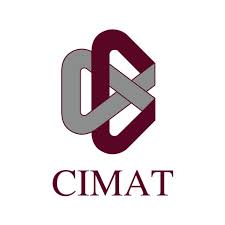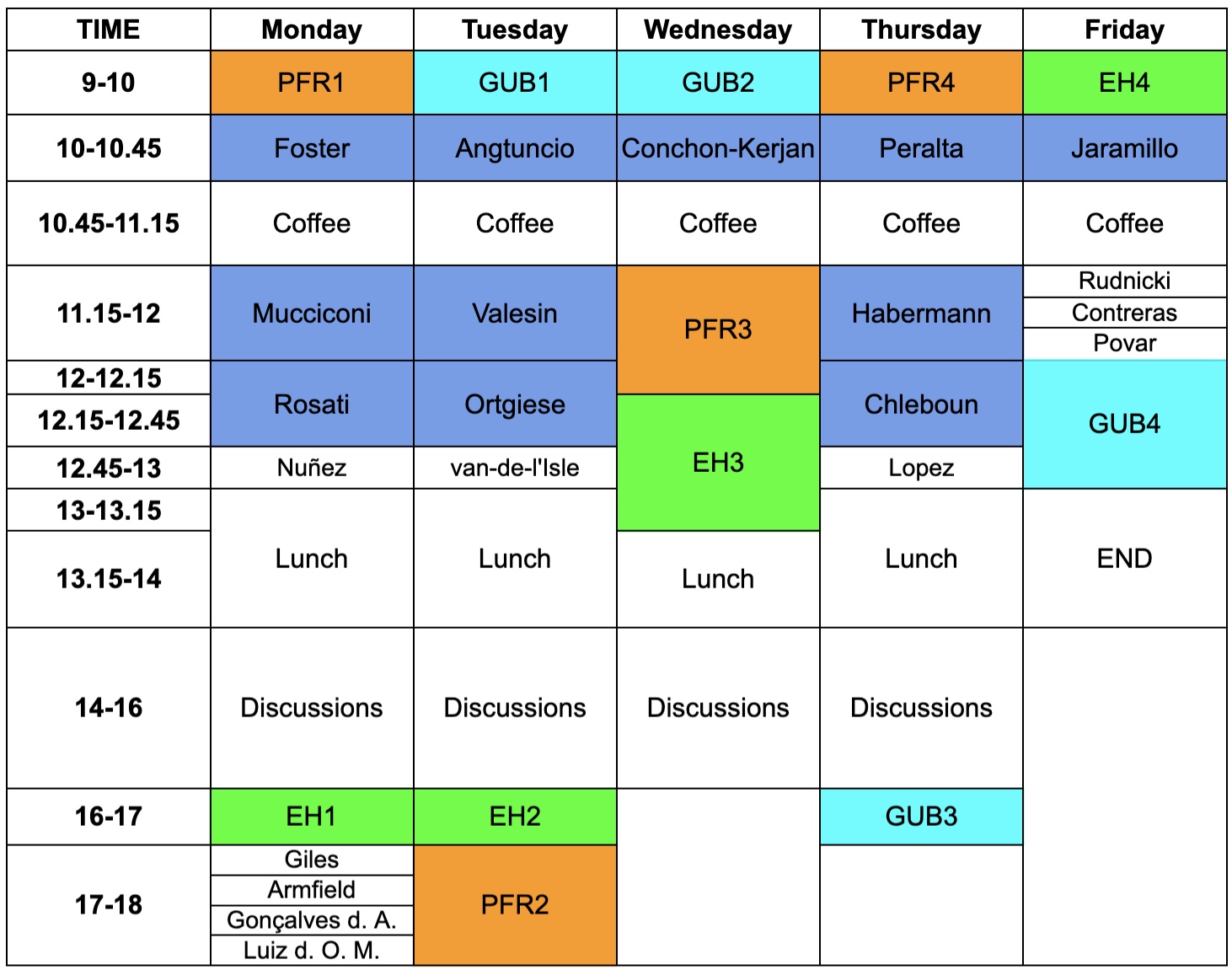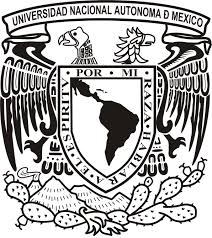CUWB Probability-on-Sea 8th January 2024
 |
|
|
|
|
|
|
If you need to send your slides to Daniel: d.kious@bath.ac.uk
| Minicourse speaker | Title and Abstract |
|
Emma Horton (Warwick)
|
Branching processes: from theory to application In these lectures we will discuss some recent results concerning a general class of spatial non-local branching processes, including Perron Frobenius type results, moment convergence, laws of large numbers and Yaglom limits. We will also discuss different Monte Carlo techniques one may use to estimate important quantities associated with these branching processes and see how these apply to some real world applications. |
|
Pierre Francois Rodriguez (Imperial)
|
Percolation and random walks Abstract: we will give the flavor of a research area motivated on the one hand by problems arising in statistical physics concerning (continuous) phase transitions, and by fragmentation and covering problems for random walks on the other. The wealth of the subject is notably due to the panoply of natural probabilistic objects that these questions bring into play, comprising for instance random walks, random interlacements and the Gaussian free field, which form a marvellous toolbox to tackle them. The course will be a gentle introduction into some of these ideas. |
|
Geronimo Uribe Bravo (UNAM)
|
Time-change equations for stochastic processes Time-change equations are a generalization of ordinary differential equations which are driven by the random and possibly densely discontinuous sample paths of the typical stochastic process. The weak theory of time-change equations was put forth by Doeblin in a quest to transorm Brownian motion into a more general diffusion process. Perhaps the most well known instance of time-change equations appear in Volkonskii's or Lamperti's transformation between Markov processes. Nowadays, time-change equations can lead to deep results on weak existence and uniqueness of stochastic differential equations and posses a robust strong approximation theory. However, time-change equations are not restricted to Markovian or semimartingale settings. In this course, we will survey theory and applications of time-change equations. We will also look into their connection to other areas such as combinatorics (via discrete trees) and to differential equations (both partial and ordinary). |
Talks by:
Osvaldo Angtuncio (UMAR)
Giuseppe Cannizaro (University of Warwick)
Guillaume Conchon-Kerjan (King's College London)
James Foster (University of Bath)
Adrian Gonzalez-Casanova (UNAM)
Karen Harbermann (University of Warwick)
Arturo Jaramillo (CIMAT)
Marcel Ortgiese (University of Bath)
Liliana Peralta (UNAM)
Tommaso Rosati (University of Warwick)
Daniel Valesin (University of Warwick)
Organizers
Daniel Kious, Andreas Kyprianou Giuseppe Cannizaro, Arno Siri-Jégousse, Sandra Palau, Juan Carlos Pardo
Tentative Schedule

PFR: Mini course by Pierre-François Rodriguez
EH: Mini course by Emma Horton
GUB: Mini course by Geronimo Uribe Bravo


